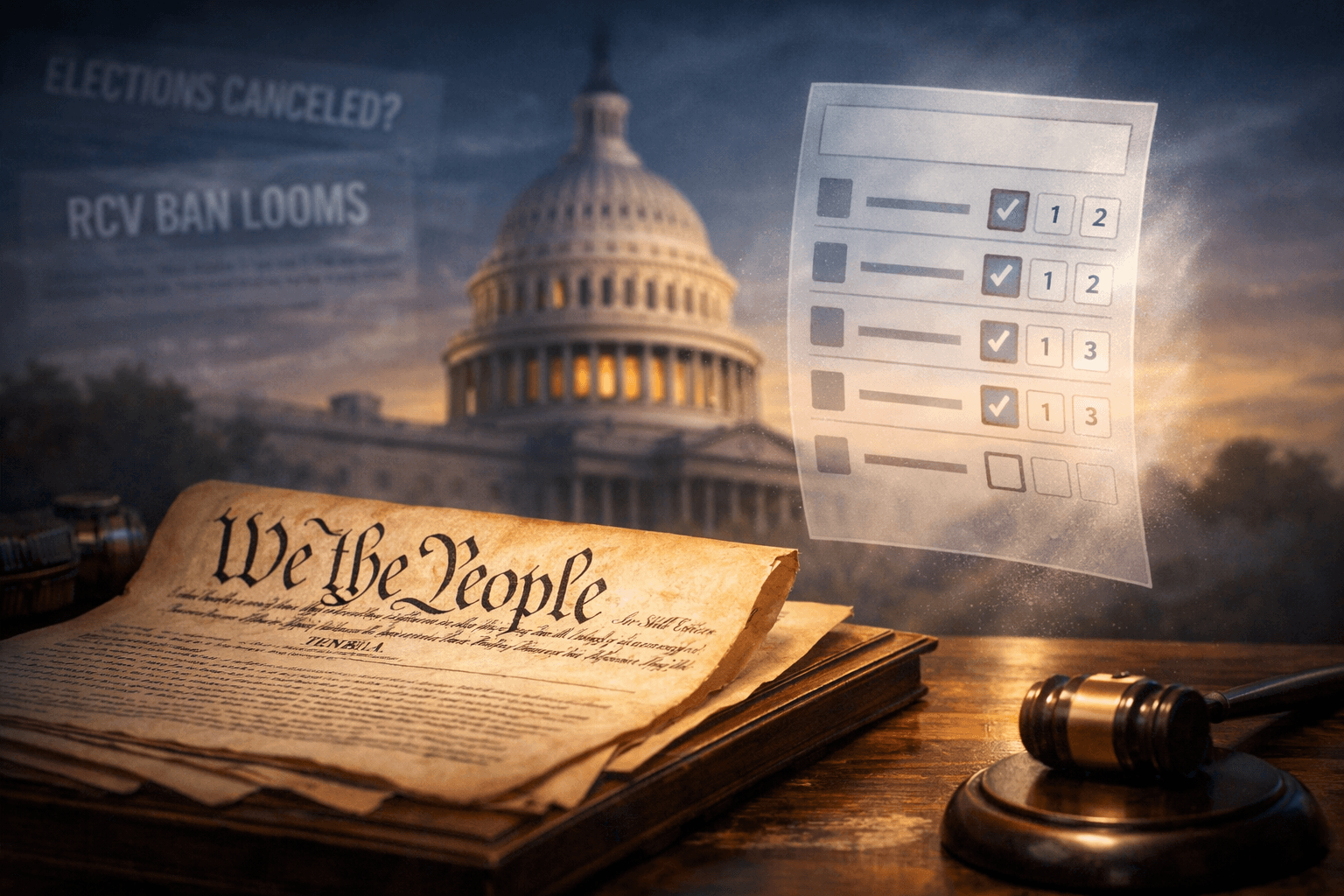'Why Am I Doing This?': Don Bacon’s Retirement Reflects a Congress Driving Out Problem Solvers

WASHINGTON, D.C. - U.S. Rep. Don Bacon (R-Neb.) recently announced his retirement from Congress, but the reasons he cites for his departure underscore a growing problem in Washington -- specifically, a rejection of problem solving in favor of division, partisan gamesmanship, and provocation.
Bacon did not cite electoral pressures, a scandal, or the pursuit of higher office in his announcement. He cited exhaustion – exhaustion from a political culture that punishes independence, rejects cooperation, and offers little reward for reaching across the aisle.
“I just don’t have the gas in the tank for another campaign,” Bacon told the Wall Street Journal. “I still love serving and think I’m effective, but the political environment has taken its toll.”
Behind his fatigue lies a deeper trend: Congress is bleeding its centrists and pragmatists – an increasingly rare form of lawmaker who puts in the work for their constituents and tries to work across the aisle to deliver results – at a time when dysfunction has become routine and tribal warfare rewards the most extreme voices.
Bacon’s Legacy Working Across the Aisle
First elected to represent Nebraska’s 2nd Congressional District in 2016, Bacon quickly developed a reputation as one of the most bipartisan Republicans in Washington and a lawmaker who put problem solving ahead of partisan politics.
Not only has he consistently ranked among the top 10 members of Congress on the Bipartisan Index published by the Lugar Center and Georgetown’s McCourt School of Public Policy, but he is a founding member and former chair of the Problem Solvers Caucus.
In 2022, the Center for Effective Lawmaking named him the most effective Republican in the House, noting his success at passing bills, securing amendments, and navigating committee work. Among his bipartisan achievements, he:
- Voted for the Bipartisan Infrastructure Law (2021), joining just 13 House Republicans to support the $1.2 trillion package.
- Supported the Respect for Marriage Act (2022), codifying protections for same-sex and interracial marriage.
- Co-sponsored and passed legislation on military housing reform, mental health services, and anti-human trafficking programs, often with Democratic co-leads.
- Supported creating the January 6 Commission and voted to certify the 2020 election, rejecting conspiracy theories and pressure from Trump allies.
Yet, Bacon is not a Never Trumper. While he is not afraid to be critical of President Trump, a FiveThirtyEight report shows he has voted with Trump nearly 87% of the time during his presidency.
He has backed Trump on tax cuts, border security, and defense funding. His criticism of Trump has been more institutional than ideological — opposing his efforts to overturn elections, intimidate lawmakers, and inflame division.
“I’m a Reagan Republican,” Bacon often said. “You can’t govern if you can’t compromise.”
The System Is Bleeding Out Its Problem Solvers
Bacon’s departure isn’t just a personal choice – it’s part of a broader exodus of centrist and pragmatic lawmakers from both parties, like former U.S. Sen. Olympia Snowe of Maine – who in many ways started this trend within the GOP.
Like Bacon, Snowe had a reputation for brokering bipartisan deals. She left the Senate in 2013, explaining that “an atmosphere of polarization and ‘my way or the highway’ ideologies has become pervasive in campaigns and in our governing institutions.”
Similarly, former centrist Democratic U.S. Rep. Ron Kind of Wisconsin (who retired in 2022), also criticized partisan division and gridlock. “The place has gotten more toxic,” he told Politico. “There's no longer any incentive to work together.”
Former Sen. Evan Bayh, a moderate Democrat from Indiana with a strong bipartisan record, left the Senate in 2011, lamenting: “There is too much partisanship and not enough progress—too much narrow ideology and not enough practical problem-solving.”
The Incentives Are Broken
The U.S. political system now punishes compromise and rewards conflict. Lawmakers in safe districts (about 90% of districts) face more threat from their party’s base in primaries than from general election voters, which creates the incentive to cater to an extreme partisan minority.
Cable news, social media, and hyper-partisan donors reward provocation, not pragmatism.
Don Bacon stayed longer than many centrists. He kept trying to make the system work, to find “common ground without compromising principles,” as he put it. But in the end, even he seemed to conclude the system wasn’t working.
“We’re losing people who actually want to govern,” said former Rep. Tom Reed (R-N.Y.), another centrist who retired in 2022 after facing pressure from both parties. “This town no longer values bipartisanship—it sees it as betrayal.”
Bacon’s departure highlights the cost of a political system designed not to solve problems but to inflame division. When lawmakers like Bacon, Snowe, Bayh, and Kind walk away, the U.S. doesn’t just lose individual voices, it loses the capacity to govern.
Because governing isn’t the priority for those that remain. The priority is putting a party, the interests of its leaders, and the self-interest to get re-elected first.
As long as this system rewards partisan purity over pragmatism and outrage over outcomes, the exodus will continue. And the people left behind won’t be the ones focused on fixing things. They’ll be the ones who benefit when nothing gets fixed at all.
 Shawn Griffiths
Shawn Griffiths





